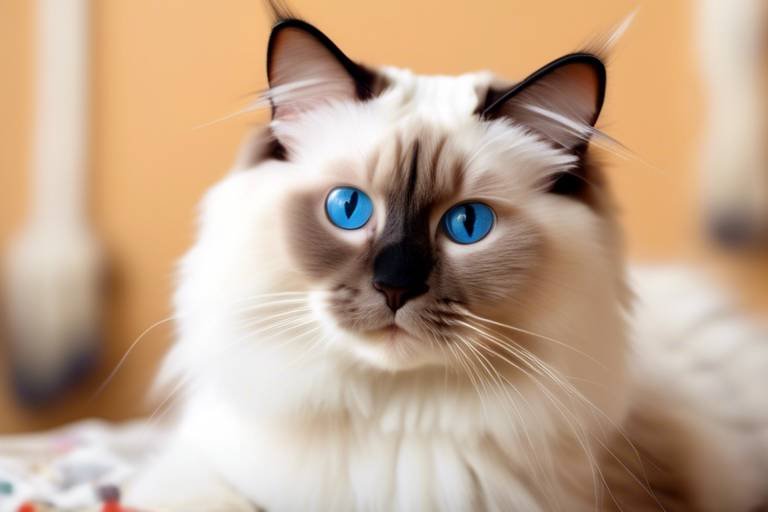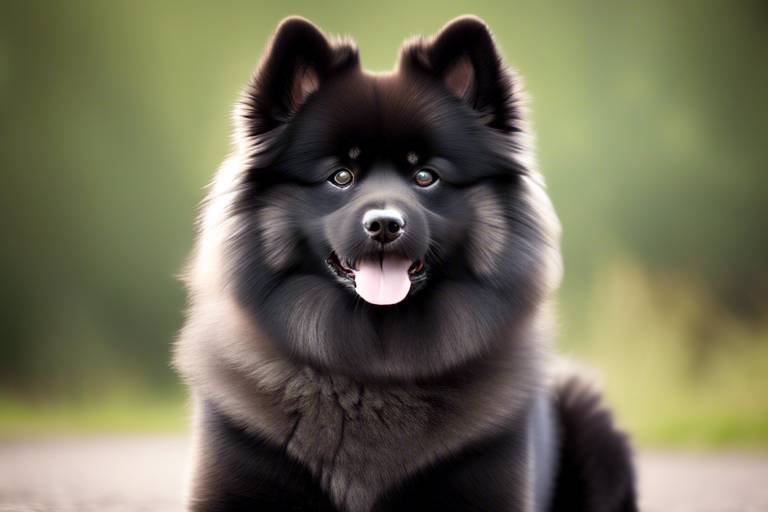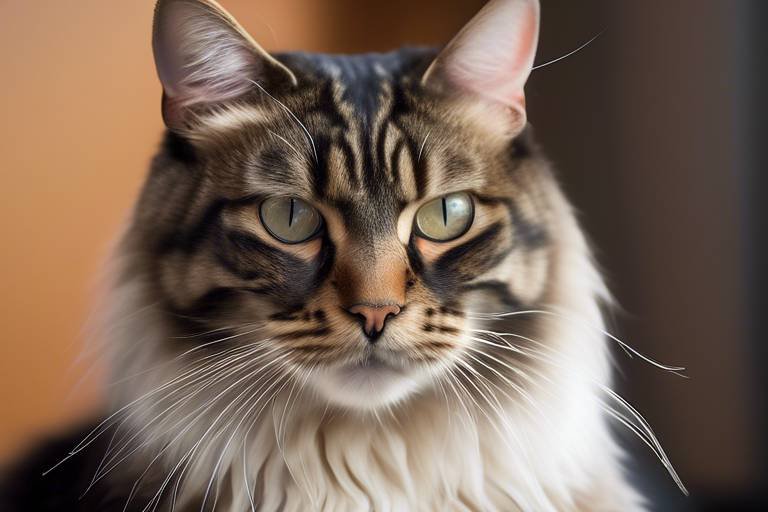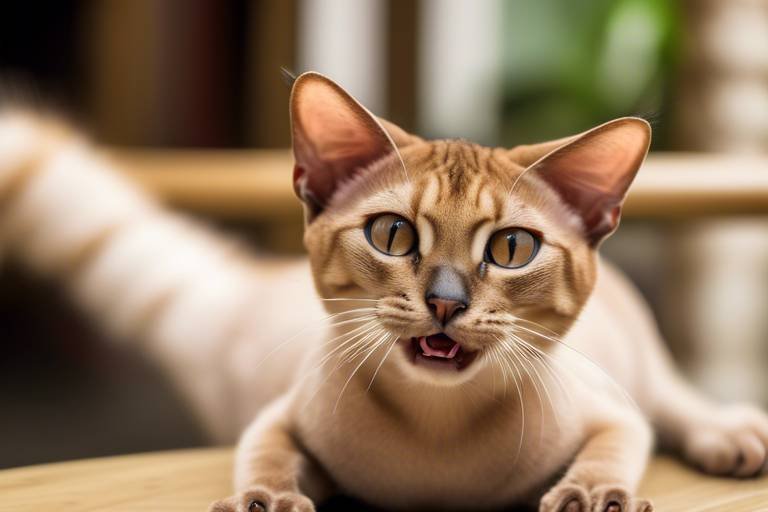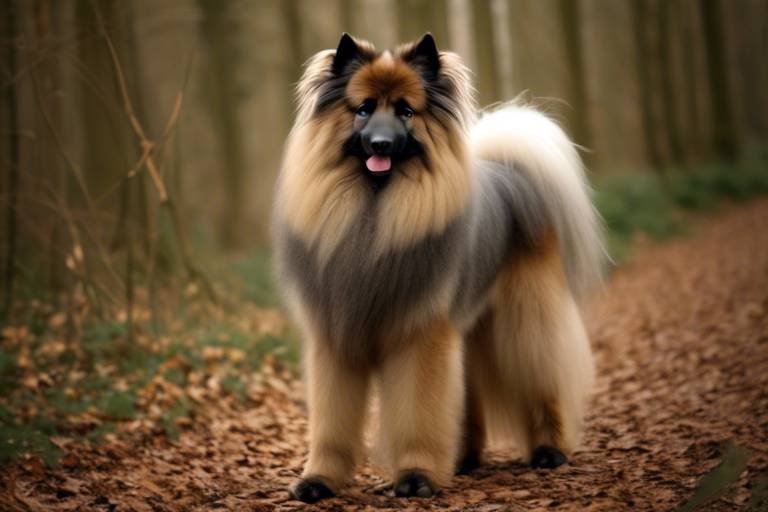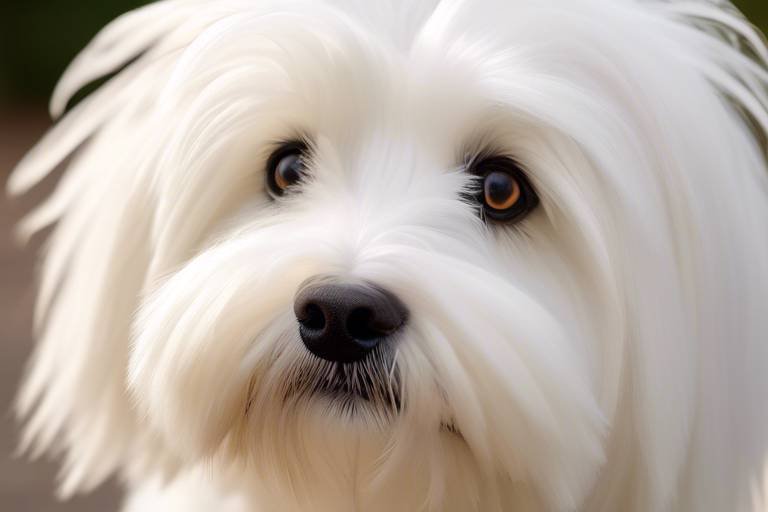The Traits of the Poodle - More Than Just a Fancy Haircut
Poodles are often seen strutting their stuff in dog shows, flaunting their luxurious coats and elegant looks. But there’s so much more to them than just a fancy haircut! These dogs are not only a feast for the eyes; they are also a treasure trove of intelligence, charm, and versatility. If you’ve ever wondered why poodles are one of the most popular breeds around the world, you’re in for a treat. Let’s dive into the distinctive characteristics that make poodles truly special!
Poodles are renowned for their exceptional intelligence, making them highly trainable. In fact, they are often considered the second smartest dog breed, right after the Border Collie. Their cognitive abilities are off the charts, allowing them to learn commands and tricks with ease. This section delves into how poodles excel in obedience training and various canine sports. Whether it’s agility, obedience, or even performing in circuses, poodles shine brightly. Their eagerness to please their owners is a driving force behind their quick learning and adaptability. Imagine having a dog that can not only fetch your slippers but can also perform a series of tricks that leave your friends in awe!
Understanding the temperament of poodles is crucial for potential owners. These dogs are not just intelligent; they are also friendly and playful, which makes them fantastic companions for families. Poodles have a unique ability to bond with their human counterparts, displaying a loving and affectionate nature. They thrive on interaction and attention, often seeking out opportunities to engage with their owners. This section discusses how they interact with families, children, and other pets, showcasing their versatility as family members. Their playful antics can lighten up any room, and their loyalty is something every owner cherishes.
Poodles thrive on social interaction. It’s essential to socialize them from a young age to foster well-rounded and confident adult dogs. Introducing them to various environments, people, and other animals can help them develop into well-adjusted pets. The more experiences they have, the better they can adapt to new situations. Think of socialization as a buffet of experiences; the more diverse the offerings, the more well-rounded your poodle will be!
Poodles can coexist peacefully with other pets, making them a great addition to multi-pet households. However, it’s important to introduce them to different animals gradually. Here are some tips for ensuring harmonious relationships:
- Start with short, supervised introductions.
- Use positive reinforcement to reward good behavior.
- Monitor their body language to gauge comfort levels.
By following these steps, you can help your poodle build friendships with other pets, creating a happy and balanced home environment.
Poodles are known for their loving nature towards families. Their playful spirit and gentle disposition make them suitable companions for households with children. They often enjoy participating in family activities, whether it’s playing fetch in the backyard or snuggling on the couch during movie night. Their ability to adapt to various family dynamics is truly remarkable, making them not just pets, but cherished family members.
Let’s face it: poodles are bundles of energy! These dogs require regular exercise to keep them happy and healthy. Their playful demeanor means they love to run, jump, and play fetch, so having a yard or access to a park is a big plus. The importance of physical activity for their overall well-being cannot be overstated. Think of it this way: just like humans, dogs need exercise to stay fit and mentally stimulated. So, if you’re looking for a furry friend who will keep you on your toes, a poodle might just be the perfect match!
While poodles are famous for their stylish coats, grooming is essential to maintain their beauty. Their unique hair type, which is often compared to human hair, requires regular brushing and professional grooming. This section covers the grooming needs of poodles, including tips for maintaining their unique hairstyles. Regular grooming helps prevent matting and keeps their coat looking fabulous. It’s not just about aesthetics; proper grooming also contributes to their overall health.
Poodles come in different coat types, each requiring specific care. The three main types—standard, miniature, and toy—vary in size but share similar grooming needs. Here’s a quick look at the differences in grooming routines based on coat variations:
| Coat Type | Grooming Frequency | Special Care Tips |
|---|---|---|
| Standard Poodle | Every 4-6 weeks | Regular brushing to prevent matting |
| Miniature Poodle | Every 4-6 weeks | Focus on ears and feet for tangles |
| Toy Poodle | Every 4-6 weeks | Be gentle during grooming sessions |
Poodles are generally healthy, but they can be prone to certain conditions. Awareness of these common health issues is crucial for responsible ownership. Regular veterinary check-ups, a balanced diet, and proper exercise can help keep them thriving. Some common health concerns include hip dysplasia, progressive retinal atrophy, and skin conditions. By being proactive about their health, you can ensure your poodle lives a long, happy, and healthy life.
1. Do poodles shed a lot?
Poodles are considered low-shedding dogs, making them a good choice for allergy sufferers. However, they still require regular grooming to manage their coat.
2. What is the average lifespan of a poodle?
With proper care, poodles typically live between 12 to 15 years, depending on their size and health.
3. Are poodles good with children?
Yes! Poodles are known for their gentle and playful nature, making them excellent companions for families with children.
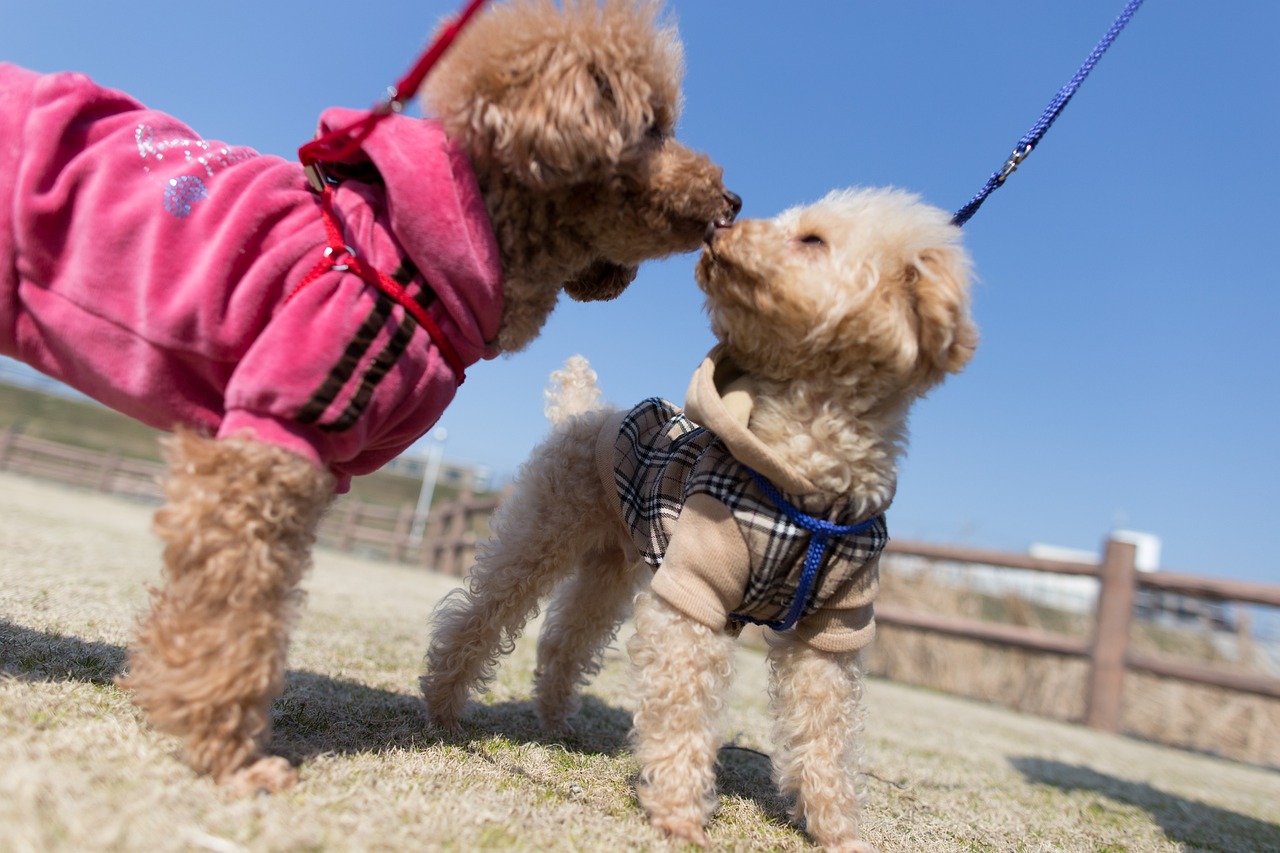
Intelligence and Trainability
Poodles are not just a pretty face; they are among the most intelligent dog breeds in the world. With their sharp minds and eagerness to please, poodles make training a breeze. Imagine having a dog that can learn commands faster than you can say "fetch!" This breed excels in obedience training, often ranking at the top of canine intelligence lists. Their ability to understand and process information is truly remarkable, allowing them to master various tricks and commands with minimal repetition.
One of the key factors contributing to their trainability is their inherent curiosity. Poodles are always eager to explore their surroundings and engage with new experiences. This natural inquisitiveness not only makes training sessions enjoyable but also helps them excel in canine sports such as agility, obedience, and even therapy work. It’s like having a little athlete who thrives on challenges! You might find your poodle effortlessly navigating an obstacle course or responding to complex commands with enthusiasm and flair.
But what makes poodles stand out in the training arena? Here are a few traits:
- Quick Learners: Poodles can grasp new concepts quickly, often requiring fewer repetitions than many other breeds.
- Versatile Skills: Whether it’s learning to retrieve, perform tricks, or participate in advanced obedience, poodles can do it all!
- Strong Bond with Owners: Their desire to please their humans fosters a strong bond, which is essential for effective training.
In addition to their intelligence, poodles are incredibly adaptable. They can thrive in various environments, whether it's a bustling city apartment or a sprawling country home. This adaptability extends to their training as well; they can learn to behave appropriately in different settings, which is a huge plus for owners who enjoy taking their pets out and about. So, if you’re considering a poodle, be prepared for a dog that not only learns quickly but also adapts seamlessly to your lifestyle.
However, it’s essential to remember that with great intelligence comes the need for mental stimulation. Poodles can become bored easily if not challenged, which may lead to mischievous behavior. Think of it like a child who isn’t given enough to do—they might find trouble just to entertain themselves! To keep your poodle engaged, incorporate a variety of activities into their routine, such as puzzle toys, obedience training, and interactive games. This way, you’ll have a happy, well-behaved companion who is always ready to learn something new.
In conclusion, the intelligence and trainability of poodles make them an exceptional choice for dog lovers looking for an engaging and interactive pet. Their quick learning abilities, coupled with their playful nature, ensure that both the dog and owner have a fulfilling experience. So, if you’re ready to embark on an exciting journey of training and bonding, a poodle might just be the perfect fit for you!
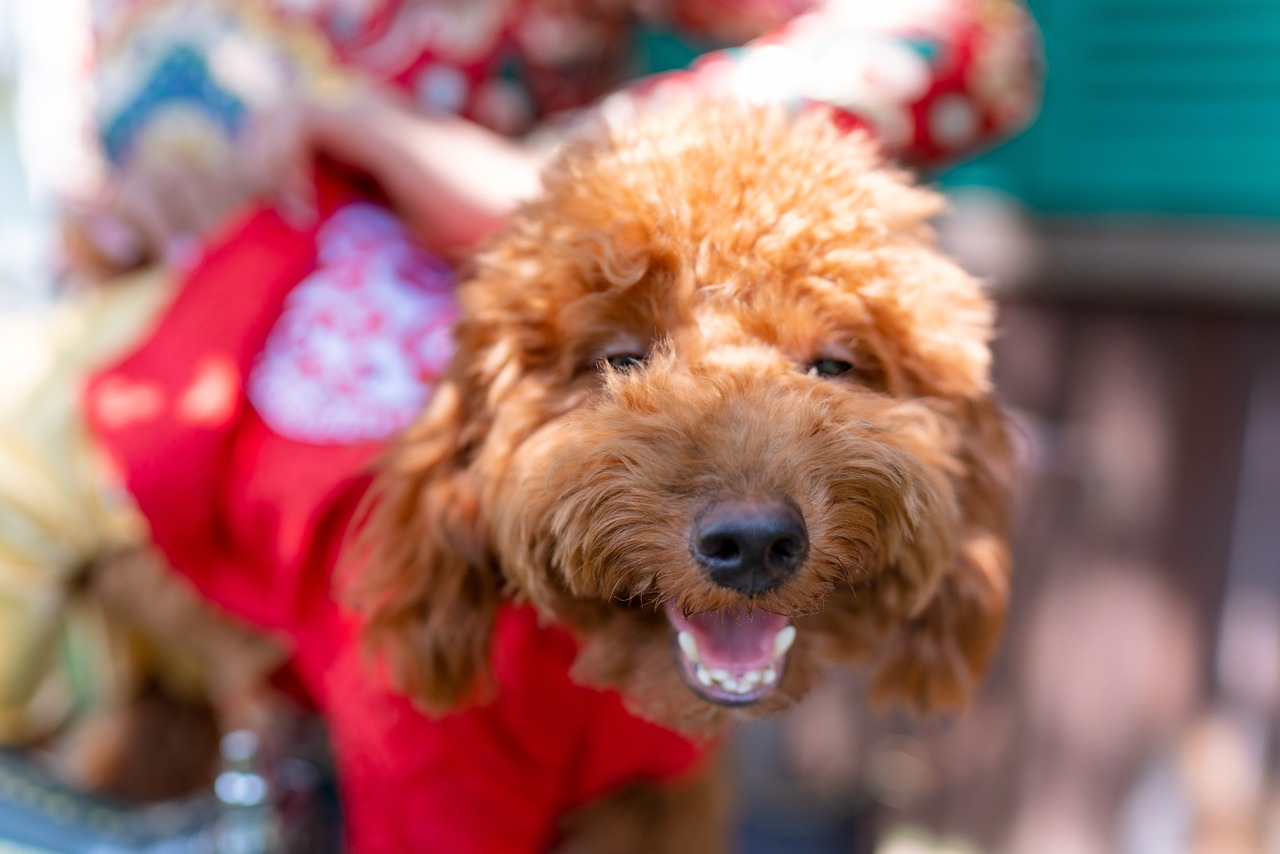
Temperament and Personality
Poodles are not just pretty faces with fancy haircuts; they are brimming with personality and charm. Known for their friendly and playful nature, these dogs are often the life of the party. Whether you're looking for a snuggly companion or an energetic playmate, poodles fit the bill perfectly. Their temperament is generally described as intelligent, affectionate, and eager to please, making them ideal family pets. But what exactly makes their personality so special?
One of the most striking characteristics of poodles is their adaptability. They can thrive in various environments, from bustling city apartments to spacious country homes. This versatility is largely due to their high intelligence and social nature. Poodles are quick learners and enjoy engaging in activities that stimulate their minds. This means they not only excel in obedience training but also in dog sports such as agility and obedience competitions. Their desire to learn and perform can be a joy to experience for any owner.
Moreover, poodles are known for their strong bonds with their families. They are incredibly loyal and affectionate, often forming tight-knit relationships with their human companions. This loyalty is not just limited to one person; poodles often shower love and attention on everyone in the household. They thrive on interaction and affection, making them wonderful companions for families with children or other pets.
Socialization is a crucial aspect of a poodle's upbringing. These dogs thrive on social interaction and need to be exposed to various environments, people, and other animals from a young age. Proper socialization helps them develop into well-rounded, confident adults. Without early exposure, poodles can become timid or overly protective, which can lead to behavioral issues. Thus, it's essential to introduce them to different experiences, such as visits to the park, playdates with other dogs, or even trips to pet-friendly stores.
When it comes to coexisting with other pets, poodles generally do well. They have a friendly disposition that allows them to get along with a variety of animals. However, introducing a poodle to a new pet should be done gradually. Here are some tips for ensuring a smooth introduction:
- Start with short meetings in neutral spaces to avoid territorial behavior.
- Supervise all interactions until you are confident in their behavior.
- Reward positive interactions with treats and praise to reinforce good behavior.
By following these steps, you can help your poodle develop harmonious relationships with other pets in your home.
Poodles are particularly well-suited for families with children. Their playful nature makes them great playmates, and their gentle temperament ensures they interact well with little ones. Poodles are patient and understanding, often displaying a remarkable ability to tolerate the antics of energetic kids. This breed's loving nature means they will often seek out attention from family members, making them a delightful presence in any household.
In conclusion, the temperament and personality of poodles make them more than just a pretty breed. They are intelligent, adaptable, and affectionate companions that thrive on social interaction and family bonds. With their playful demeanor and loving nature, they truly enrich the lives of those who welcome them into their homes.
Q: Are poodles good with children?
A: Yes, poodles are known for their gentle and playful nature, making them excellent companions for children.
Q: How much exercise do poodles need?
A: Poodles are energetic dogs that require regular exercise, including daily walks and playtime.
Q: Do poodles get along with other pets?
A: Generally, poodles are friendly and can coexist peacefully with other pets, especially with proper socialization.
Q: Are poodles easy to train?
A: Yes, poodles are highly intelligent and eager to please, which makes them very trainable.
Socialization Needs
When it comes to poodles, socialization is not just a term thrown around by dog trainers; it’s a fundamental aspect of their development. Imagine a poodle as a sponge, soaking up experiences and interactions that shape their personality. Without proper socialization, this intelligent breed can become anxious or overly reserved, which is the last thing you want for your furry friend. From the moment they are puppies, poodles thrive on exposure to various environments, people, and other animals. This early interaction is crucial in helping them develop into well-rounded adults.
Socializing your poodle is akin to introducing a child to the world. Just as kids learn to navigate social cues and build relationships, poodles need similar experiences. Regular playdates with other dogs, trips to the park, and visits to pet-friendly establishments can significantly enhance their confidence and adaptability. It’s essential to start this process early, ideally between 3 to 14 weeks of age, as this is when they are most receptive to new experiences. However, even older poodles can benefit from socialization, proving that it’s never too late to broaden their horizons.
Incorporating various activities into your poodle's routine not only keeps them engaged but also helps mitigate behavioral issues. For instance, a well-socialized poodle is less likely to exhibit aggression or fear-based reactions when encountering new situations. Here are a few key areas to focus on during socialization:
- Exposure to Different Environments: Take your poodle on car rides, to busy streets, or even to the beach. Each new location offers unique sights, sounds, and smells.
- Interactions with People: Encourage your poodle to meet adults and children alike. This helps them learn to trust and interact positively with humans of all ages.
- Meeting Other Animals: Introduce your poodle to various pets, from cats to rabbits. This teaches them how to behave around different species.
Remember, the goal of socialization is not just to expose your poodle to new experiences but to ensure they feel comfortable and confident in various situations. Positive reinforcement is key here; reward your poodle with treats and praise when they handle a new experience well. This approach helps them associate new encounters with positivity, making them more likely to embrace future interactions.
In summary, socialization is a vital component of raising a happy and healthy poodle. By investing time in their social development, you’re not only enhancing their quality of life but also creating a bond built on trust and understanding. So, get out there, explore the world, and watch your poodle flourish into a confident and well-adjusted companion!
Interaction with Other Pets
When it comes to interacting with other pets, poodles are often seen as the social butterflies of the canine world. Their friendly demeanor and playful nature make them excellent companions, not just for humans but also for other animals. However, just like any relationship, the introduction process is crucial. If you're considering adding a poodle to your home that already has other pets, you might be wondering how to ensure a smooth transition.
First and foremost, it’s essential to remember that poodles are highly intelligent and sensitive. This means they can pick up on the emotions and behaviors of other animals, which can either make or break their relationships. When introducing a poodle to other pets, it’s advisable to do so in a controlled environment. Start with short, supervised meetings and gradually increase the time they spend together as they become more comfortable with each other. This gradual exposure helps to build trust and reduces anxiety for both the poodle and the existing pets.
To facilitate these introductions, consider the following tips:
- Neutral Territory: Start introductions in a neutral space where neither pet feels territorial.
- Positive Reinforcement: Use treats and praise to reward calm behavior during interactions.
- Monitor Body Language: Watch for signs of stress or aggression, such as growling or raised hackles, and be ready to intervene if necessary.
Poodles are generally adaptable and can coexist well with a variety of animals, including cats, rabbits, and even birds. However, it’s important to consider the personality of the other pets involved. For example, a laid-back cat might be more accepting of a playful poodle than a feisty one. In households with multiple pets, establishing a hierarchy can help minimize conflicts. Poodles, being naturally social, often take on a role that helps maintain harmony within the group.
In conclusion, with proper introductions and ongoing socialization, poodles can thrive in multi-pet households. Their friendly nature, combined with an understanding of their social needs, can lead to a happy and harmonious living environment. So, if you’re thinking about welcoming a poodle into your home, rest assured that they can be a wonderful addition to your furry family!
- Can poodles get along with cats? Yes, with proper introductions and socialization, poodles can coexist peacefully with cats.
- How should I introduce my poodle to other pets? Start in a neutral space, monitor their interactions, and use positive reinforcement to encourage good behavior.
- Are poodles aggressive towards other pets? Generally, poodles are friendly and social, but individual temperament can vary. Proper introductions are key!
Family Dynamics
When it comes to family dynamics, poodles are like the glue that holds everything together. Their affectionate nature and playful spirit make them ideal companions for households with children. Imagine a family gathering where laughter fills the air, and amidst it all, a poodle is joyfully bouncing around, engaging with everyone. It’s this vibrant personality that makes them not just pets but integral family members.
Poodles have an innate ability to sense the emotions of those around them. They can be playful and energetic when the kids are full of life, yet calm and comforting when someone is feeling down. This emotional intelligence is one of the many reasons why they fit so seamlessly into family life. They thrive on interaction and enjoy being included in family activities, whether it’s a game of fetch in the backyard or snuggling on the couch during movie night.
Moreover, poodles are gentle and patient, which is essential when interacting with younger children. They are known to be tolerant of the occasional tug at their ears or tail, making them a suitable choice for families with little ones. However, it's crucial to teach children how to interact with dogs respectfully. A little guidance goes a long way in ensuring that both the poodle and the child enjoy their time together.
One of the most heartwarming aspects of poodles is their loyalty to the family unit. They often develop a special bond with each family member, becoming a source of comfort and joy for everyone. For instance, they might follow the kids around the house, ready to join in on their adventures, or sit beside a family member who is feeling blue, offering silent support. This bonding creates a sense of security and love that is palpable in any home with a poodle.
To ensure that a poodle integrates well into family dynamics, early socialization is key. Introducing them to various family members and allowing them to experience different environments can foster a well-rounded temperament. Here are a few tips for facilitating this process:
- Encourage gentle interactions between children and the poodle.
- Expose the poodle to different household sounds and activities.
- Involve the whole family in training sessions to strengthen the bond.
In summary, poodles are not just pets; they are family members that bring joy, love, and companionship into the home. Their ability to adapt to family dynamics and connect with each individual makes them a cherished addition to any household. With the right care and attention, a poodle can thrive in a family setting, creating memories that last a lifetime.
Q: Are poodles good with children?
A: Yes, poodles are generally very good with children due to their gentle and playful nature. They can be great companions for kids when properly socialized.
Q: How much exercise do poodles need?
A: Poodles are energetic dogs that require regular exercise, ideally around 30 to 60 minutes a day, depending on their age and size.
Q: Do poodles shed a lot?
A: Poodles are considered hypoallergenic and have a curly coat that traps dander and hair, making them a good choice for allergy sufferers.
Q: How can I help my poodle adjust to family life?
A: Early socialization, consistent training, and involving the poodle in family activities are great ways to help them adjust and thrive in a family setting.
Energetic and Playful Nature
Poodles are not just a pretty face; they are bundles of energy wrapped in elegant fur! These dogs are known for their playful demeanor and zest for life, making them fantastic companions for anyone who enjoys an active lifestyle. Imagine coming home after a long day, and there’s your poodle, tail wagging, ready to turn your living room into a playground. Their energy is contagious, and it’s hard not to smile when you see them bouncing around, ready to engage in a game of fetch or tug-of-war.
Regular exercise is not just a suggestion for poodles; it’s a necessity! Without adequate physical activity, these dogs can become restless and even develop behavioral issues. So, how much exercise do they need? Well, a good rule of thumb is to aim for at least 30 to 60 minutes of exercise each day. This can include walks, playtime in the yard, or even swimming—yes, poodles are natural swimmers! Their energetic nature means they thrive when they have opportunities to burn off that excess energy, keeping them happy and healthy.
Engaging in various activities also helps stimulate their minds. Poodles are highly intelligent, and a bored poodle is often a mischievous one. Therefore, incorporating mental challenges into their routine is essential. Activities such as puzzle toys, obedience training, and agility courses can provide the perfect blend of physical and mental stimulation. You might find that your poodle excels in canine sports, showcasing their athleticism while having a blast!
In addition to traditional exercise, poodles love social playdates with other dogs. This not only helps them expend energy but also teaches them valuable social skills. When introducing your poodle to other dogs, it's crucial to ensure that the interactions are positive. A well-organized playdate can help your poodle learn how to communicate and play nicely with their furry friends, setting the stage for a well-rounded and confident adult dog.
Ultimately, the playful nature of poodles is one of their most endearing traits. They are always ready for an adventure, whether it's a trip to the dog park, a game of chase, or simply a romp around the house. So, if you're considering bringing a poodle into your life, be prepared for a furry friend that will keep you on your toes and fill your days with joy and laughter!
- How much exercise does a poodle need daily? Poodles typically require at least 30 to 60 minutes of exercise each day to stay healthy and happy.
- Can poodles play well with other dogs? Yes! Poodles are social dogs that usually get along well with other pets when properly introduced.
- What activities are best for a poodle? Engaging in activities like fetch, swimming, and agility training can be great for their physical and mental stimulation.
- Do poodles enjoy being around children? Absolutely! Poodles are known for their friendly and playful nature, making them excellent companions for families with kids.
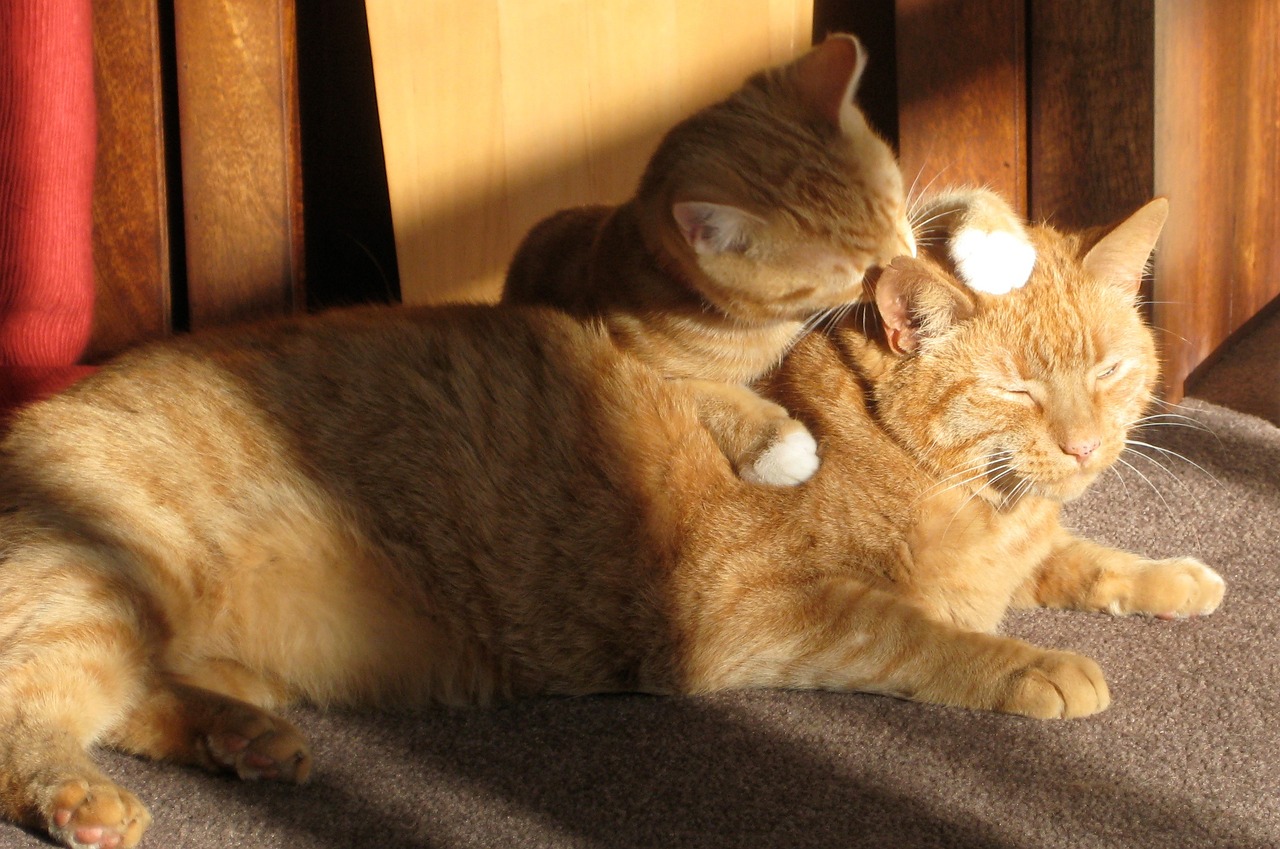
Grooming and Maintenance
When it comes to poodles, their stunning appearance is often complemented by the need for regular grooming. These dogs are known for their beautiful, curly coats that can be both a blessing and a challenge for pet owners. Unlike many other breeds, poodles don’t shed much, which can be great for allergy sufferers. However, this means that their hair can become matted if not properly cared for. To keep your poodle looking fabulous and feeling comfortable, it’s essential to establish a consistent grooming routine.
First and foremost, brushing your poodle’s coat is crucial. Aim to brush them at least two to three times a week, but daily brushing is ideal, especially for those with longer hair. This not only prevents tangles and mats but also helps distribute natural oils throughout their coat, keeping it shiny and healthy. When brushing, use a slicker brush or a comb specifically designed for curly coats to get through any knots gently. Remember, grooming time can also be a fantastic bonding experience between you and your furry friend!
Another important aspect of poodle grooming is their haircuts. Poodles come in various styles, from the classic "poodle cut" to the more modern "puppy cut." The choice of style often depends on personal preference and how much time you’re willing to dedicate to upkeep. If you’re not comfortable grooming your poodle yourself, consider visiting a professional groomer every 6 to 8 weeks to maintain their coat and keep them looking sharp.
Here’s a quick overview of the grooming needs based on the different poodle sizes:
| Poodle Size | Grooming Frequency | Recommended Haircut Style |
|---|---|---|
| Toy Poodle | Every 4-6 weeks | Puppy Cut or Lamb Cut |
| Miniature Poodle | Every 6-8 weeks | Classic Poodle Cut or Teddy Bear Cut |
| Standard Poodle | Every 6-8 weeks | Continental Cut or Sporting Cut |
In addition to coat care, don’t overlook other grooming essentials like nail trimming, ear cleaning, and dental hygiene. Regularly trimming your poodle’s nails is vital to prevent discomfort and potential injury. Ideally, you should trim their nails every 3-4 weeks. For ear care, check for excess wax and debris, cleaning them gently with a vet-approved solution. Lastly, dental health is crucial; brush your poodle's teeth several times a week to avoid dental issues.
Overall, grooming a poodle can seem daunting at first, but with a little patience and practice, it becomes a rewarding routine. Not only does it keep your poodle looking their best, but it also contributes significantly to their overall health and happiness. Remember, a well-groomed poodle is a happy poodle!
- How often should I groom my poodle? Aim for at least 2-3 times a week for brushing, and schedule professional grooming every 6-8 weeks.
- Can I groom my poodle at home? Yes! With the right tools and techniques, you can groom your poodle at home. Start with brushing and gradually learn about haircuts.
- What are the best tools for grooming a poodle? A slicker brush, comb, scissors, and a good quality dog shampoo are essential for maintaining a poodle's coat.
Coat Types and Care
Poodles are not just a pretty face; their coats are one of the most distinctive features of the breed, and they come in a variety of types that require different care routines. The three main sizes of poodles—Standard, Miniature, and Toy—each have unique coat characteristics that contribute to their overall charm. The poodle's coat is curly, dense, and hypoallergenic, which means it doesn't shed much, making them a fantastic choice for allergy sufferers. However, this also means that their grooming needs can be quite specific and, at times, demanding.
When it comes to coat types, poodles generally have two variations: the curly coat and the wavy coat. The curly coat is tightly curled and requires regular grooming to prevent matting, while the wavy coat is softer and can be easier to manage but still needs attention. Regardless of the coat type, poodles should be brushed at least two to three times a week to keep their fur healthy and free of tangles. Regular grooming not only keeps their coat looking fabulous but also allows for early detection of any skin issues or parasites.
Here's a quick breakdown of the grooming needs based on coat types:
| Coat Type | Grooming Frequency | Special Care Tips |
|---|---|---|
| Curly Coat | 2-3 times a week | Use a slicker brush and a comb to prevent matting. |
| Wavy Coat | 1-2 times a week | Use a bristle brush to maintain softness. |
In addition to regular brushing, poodles require professional grooming every 4 to 6 weeks to maintain their signature look. Many owners opt for the classic "poodle cut," which not only showcases their elegant stature but also helps manage their coat's volume and length. However, you can choose from various styles based on your lifestyle and preferences. Always consult with a professional groomer to find the best cut that suits both you and your poodle.
It's also essential to consider the health of your poodle's skin while caring for their coat. Regular baths using a gentle dog shampoo can help keep their skin clean and hydrated. After bathing, make sure to thoroughly dry their coat to prevent any dampness, which can lead to skin irritations. Pay special attention to the areas behind the ears and between the toes, as these spots can be prone to matting and moisture retention.
Ultimately, grooming a poodle is a labor of love that not only keeps them looking stunning but also strengthens the bond between you and your furry friend. So, whether you’re a seasoned poodle owner or considering bringing one into your home, understanding their coat types and care requirements is vital for a happy and healthy pup.
- How often should I groom my poodle? It's recommended to groom your poodle 2-3 times a week, with professional grooming every 4-6 weeks.
- Can I groom my poodle at home? Yes, you can groom your poodle at home, but professional grooming is essential for maintaining their signature styles.
- What type of shampoo is best for poodles? Use a gentle, hypoallergenic dog shampoo to keep your poodle's skin and coat healthy.
- Do poodles shed? Poodles are considered hypoallergenic and shed very little, making them suitable for allergy sufferers.
Health Considerations
Poodles are generally regarded as a healthy breed, but like all dogs, they can be susceptible to certain health issues. Understanding these potential concerns is crucial for any poodle owner or prospective buyer. One of the most common health issues that poodles face is hip dysplasia, a genetic condition that affects the hip joint, leading to arthritis and pain. Regular vet check-ups and maintaining a healthy weight can help mitigate the risks associated with this condition.
Another condition to be aware of is progressive retinal atrophy (PRA), a degenerative eye disorder that can lead to blindness. Fortunately, many responsible breeders screen for this condition, so choosing a reputable source can significantly reduce the risk. Additionally, poodles may be prone to skin issues, particularly if they have allergies. These allergies can manifest in various ways, including itching, redness, and hair loss. Regular grooming and monitoring your dog's skin condition can help catch these problems early.
To give you a clearer picture of the health considerations for poodles, here’s a table summarizing some common health issues:
| Health Issue | Description | Preventive Measures |
|---|---|---|
| Hip Dysplasia | A genetic condition affecting the hip joint. | Regular vet check-ups and maintaining a healthy weight. |
| Progressive Retinal Atrophy (PRA) | A degenerative eye disorder leading to blindness. | Choose reputable breeders who screen for PRA. |
| Skin Allergies | Can cause itching, redness, and hair loss. | Regular grooming and monitoring skin condition. |
In addition to these specific health concerns, poodles are also prone to certain behavioral issues if not properly socialized or trained. Regular exercise and mental stimulation are vital not just for their physical health but for their mental well-being as well. Engaging your poodle in various activities, from agility training to simple fetch games, can help keep them fit and happy. Moreover, maintaining a balanced diet tailored to their age and activity level is essential for their overall health.
In summary, while poodles are generally robust and healthy dogs, being aware of these health considerations can help you provide the best care possible. Regular veterinary visits, a proper diet, and a proactive approach to their grooming and socialization can ensure that your poodle lives a long, happy, and healthy life.
- What is the average lifespan of a poodle? Poodles typically live between 12 to 15 years, depending on their size and overall health.
- Are poodles hypoallergenic? Yes, poodles are often considered hypoallergenic due to their curly coats, which trap dander and hair.
- How often should I groom my poodle? Regular grooming is essential, typically every 4 to 6 weeks, to maintain their coat and prevent matting.
- What type of food is best for poodles? A high-quality, balanced diet that suits their age, size, and activity level is recommended.
Frequently Asked Questions
- Are poodles really as intelligent as people say?
Absolutely! Poodles are often considered one of the smartest dog breeds out there. Their ability to learn commands quickly and excel in various canine sports is a testament to their intelligence. If you're looking for a dog that can learn tricks and obey commands, a poodle might just be your perfect match!
- What is the temperament of a poodle like?
Poodles are known for their friendly and playful nature. They often get along well with families, children, and even other pets! Their sociable demeanor makes them excellent companions. If you're after a dog that brings joy and laughter into your home, a poodle will not disappoint!
- How important is socialization for poodles?
Socialization is crucial for poodles! From a young age, exposing them to different environments, people, and animals helps them grow into well-rounded adults. Without proper socialization, they might become shy or anxious. So, get your poodle out there and let them meet the world!
- Can poodles live harmoniously with other pets?
Yes, they can! Poodles are generally adaptable and can coexist peacefully with other pets. The key is to introduce them gradually and monitor their interactions. With a little patience and guidance, you'll find that your poodle can make friends with just about anyone!
- How much exercise do poodles need?
Poodles are energetic dogs that require regular exercise to stay healthy and happy. Daily walks, playtime, and mental stimulation are essential to keep them active. Think of it like this: a tired poodle is a happy poodle! So, make sure you set aside time for fun and games!
- What are the grooming needs of poodles?
Poodles do require regular grooming to maintain their beautiful coats. Brushing several times a week and scheduling professional grooming every few months will help keep their fur looking fabulous. If you love a stylish dog, be prepared for some grooming commitment!
- Are there any common health issues with poodles?
Like any breed, poodles can be prone to certain health conditions, such as hip dysplasia and eye disorders. Regular vet check-ups and preventive care can help keep your poodle in top shape. Remember, a little proactive care goes a long way in ensuring a long, happy life!





